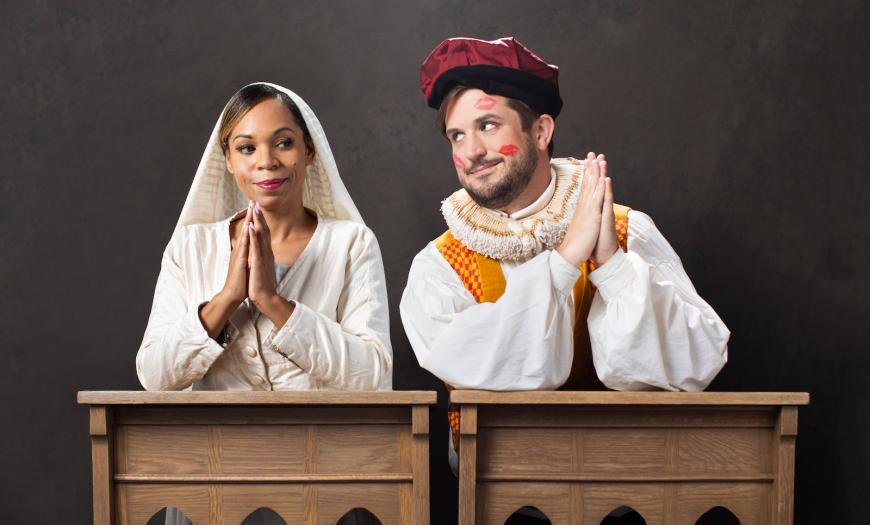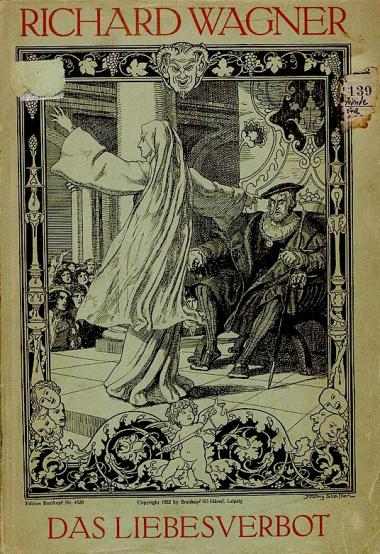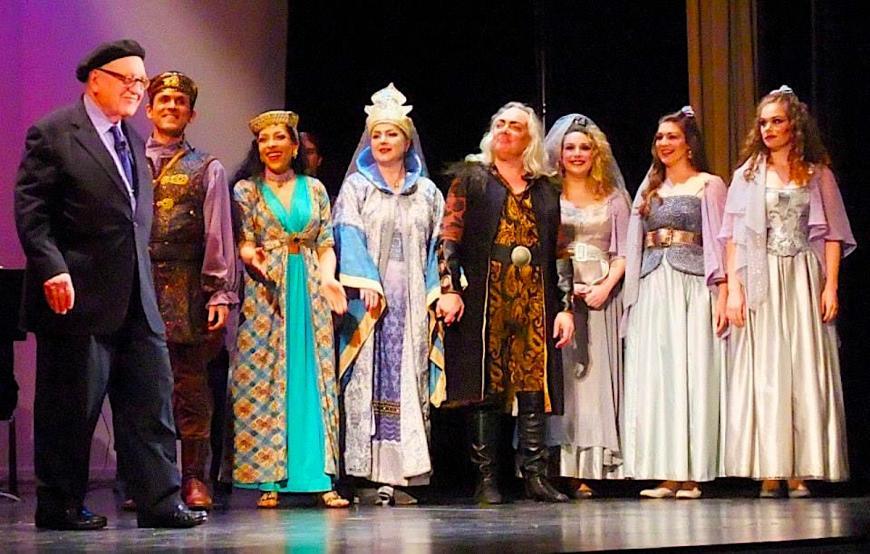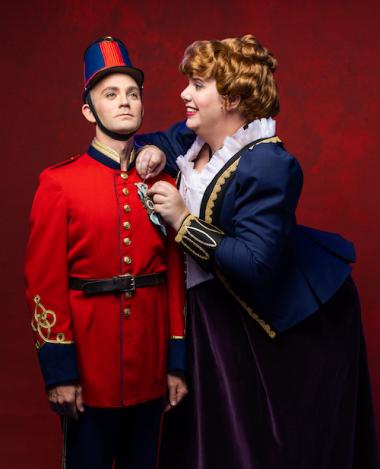
As if it were not enough to maintain an opera company on chump change, the late Donald Pippin always experimented with little-known works presented by his Pocket Opera over the decades.
Some 30 years ago, Pippin presented a little-known opera by Richard Wagner, the 1836 Das Liebesverbot (The ban on love), written when the composer was 23-years old. Pocket Opera scheduled a reprise of the work for 2020, but it became part of the pandemic-erased season. Now, it is the second opera on the 2022 season, after The Merry Widow, in May.

Following the incomplete Die Hochzeit (The wedding, 1832) and Die Feen (The fairies, 1834), completed at age 21 but unproduced in his lifetime, Wagner finished Liebesverbot while he was music director at the small opera house in Magdeburg. After one performance, the company went into bankruptcy, leaving Wagner nearly destitute.
Music director Jonathan Khuner and stage director Nicolas A. Garcia lead Pocket Opera’s project to present Wagner’s musical take on Shakespeare’s Measure for Measure.
“People picture Richard Wagner as the originator of the modern super-serious, ultra-deep musical-dramatic ‘magnum opus,’” Khuner told SF Classical Voice. “His early comedic opera Das Liebesverbot, with the magic of Donald Pippin’s clever translation, is the more amazing for combining the charm of idealistic youth, the depth of Shakespeare, the suffusion of Italian bel canto idiom, and already complete control of vocal writing and orchestration.
“The only non-surprising element is Wagner’s penchant for length, but Pocket Opera’s version will have plenty of cuts, and promises to be as delicious now as when Pippin first produced it in 1990.” A recording of the opera, also cut, runs two-and-a-half hours.
Khuner finds an “astonishing level of sheer competence” in young Wagner’s work, but Liebesverbot remained virtually unknown during the composer’s life “because he himself suppressed it after his early championing yielded negative public results and his subsequent maturing earned a unique public profile.

“Das Liebesverbot has been received as amusing juvenilia, immature rubbish, or seed of future profundity,” says Khuner. “I think all those reactions may be valid as partial responses, but it would be far better to approach the work on its own terms. From his words and deeds, it’s clear that Wagner was just trying to write a good comic-romantic show. The question should be ‘how well did he succeed at comedy?’
“The answer is amazingly well! First of all, he adapted Shakespeare brilliantly, scrapping the elements for which he had no use (mainly the serious monarch who disguises himself in supposed absence and manipulates the whole scenario) and re-arranging the remaining still-complicated elements (mainly the heroine rescuing herself from rape and her brother from execution) with near-perfect dramatic coherence and development of characters.
“Every change of location, name, love-object, and plot twist is calculated to make best sense and entertain. Second of all, he devises musical and vocal elements cleverly for clarity and ease of elaboration. Third, all levels of construction in the score, including harmonic relations/variety, instrumentation, momentum, placement of climaxes, and so on, demonstrate totally professional workmanship and extraordinary care.
“The Italianate style of phrase and vocal approach is a talented, faithful imitation of what was current in 1835. What else can one ask of a young novice undertaking to join a guild of creators in a mature, two-century-old genre? I, for one, am not going to demand total mastery, revolutionary esthetics, or deep wisdom.
“The one thing I might have requested from Wagner is less extended length — prolixity turns out to be a tendency that he displayed superlatively from the start. Fortunately, a great deal of trimming can be applied in 2021 without losing any of the brilliant qualities of Wagner’s original score. Pocket Opera’s version runs about three fourths as long as the original and moves rapidly, with all the exuberant charm that the kid (genius-in-training) was inspired to infuse.”
The cast for No Love Allowed (Pippin’s translation of the title) includes Leslie Sandefur as Isabella, Patrick Hagen as Luzio, Justin Brunette as Claudio, and Spencer Dodd as Friedrich.

The full Pocket season:
- Lehár, The Merry Widow — March 27, Hillside Club; April 3, Mountain View; April 10, Legion of Honor
- Wagner, No Love Allowed — May 15, Hillside Club; May 22, Legion of Honor; May 29, Mountain View
- Offenbach, The Grand Duchess of Gerolstein — June 12, Hillside Club; June 19, Mountain View; June 26, Legion of Honor
- Verdi, La traviata — July 10, Mountain View; July 17, Hillside Club; July 24, Legion of Honor

The loss of Pippin continues to be mourned by the company. Longtime Pocket Opera singer Wayne Wong says, “Donald was like the mastermind of a great jewel heist. He assembled the team, calling on each specialist to do their part. On the day of the show, we swept in and pulled it off, and you always felt Donald leading the way at the piano.”
Some 150 people attended the memorial for Pippin, livestreamed for his family and fans everywhere, at the American Bites Restaurant, which was once the Old Spaghetti Factory, where Pocket Opera started. “It was a wonderful celebration of an extraordinary man,” said Garcia, who is now leading the company. “He changed my life.”
Pocket Opera Board President Mel Bachmeier and Yen Bachmeier, coexecutors of Pippin’s estate, both spoke at the memorial. Mel said, “Donald was an inspiration. As serious as he was about the music, he also conveyed the sense of fun and pleasure that was part of the art form. He made the experience thought-provoking and entertaining. As Pocket Opera goes forward without Donald, we intend to try new things, but we will always continue to present work from his amazing repertoire of opera translations with his standard of satisfying the audience in mind.”





